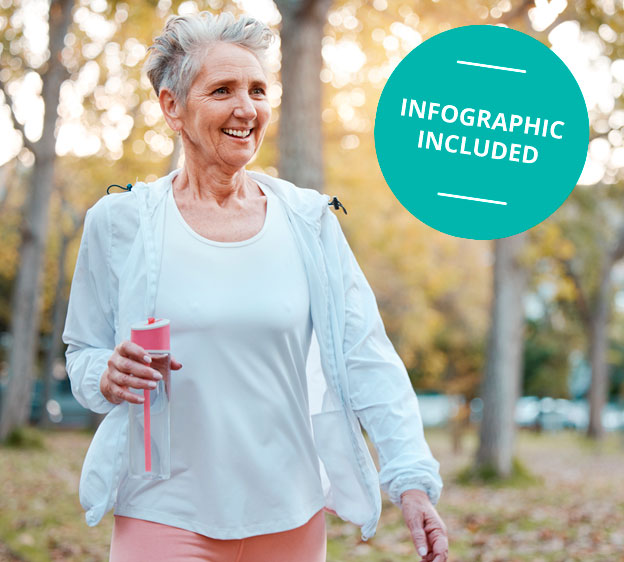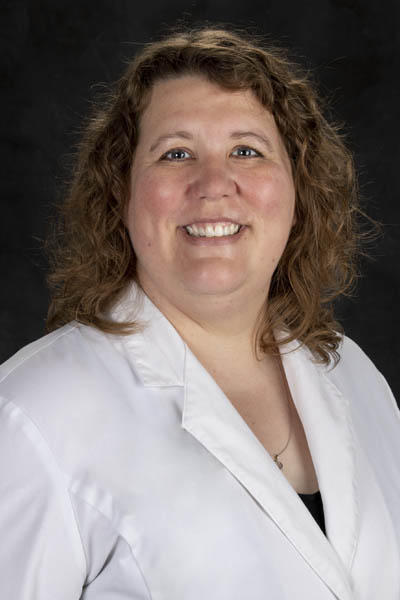How to Increase Your Vitamin D Levels and Improve Your Overall Health
September 12, 2023
Getting out in the sunshine can be great for your mental health — nothing boosts your mood like a brisk walk on a sunny day. But did you know sunshine is important for your physical health too? Sun exposure helps your body create vitamin D, which is essential for strong bones and a healthy immune system. If you’re wondering how to increase your vitamin D intake, you’re not alone.
Read More: Give Your Immune System a Boost
Why Vitamin D Is Important
Vitamin D is one of several essential nutrients your body needs to function. Along with vitamins A, B, C, E and K and minerals such as iron, these nutrients help your cells grow. We have to get all our vitamins, except for vitamin D and K, from outside sources — foods, drinks or supplements.
“Vitamin D is one of the only vitamins your body can create on its own, with the help of sunlight,” says Nikki Newman, board-certified physician assistant at Beaufort Memorial Lowcountry Medical Group Primary Care. “Your body needs vitamin D to absorb calcium and phosphorus, minerals that help build and strengthen bones.”
In addition to promoting healthy bones, vitamin D may provide protection against several other conditions, including:
- Dementia
- Depression
- Diabetes
- Heart disease
- High blood pressure
- Immune system disorders
- Infections
- Some types of cancer, such as colon, prostate and breast cancers
Getting enough vitamin D is especially important for growing children and older adults. Research has found low levels of vitamin D are associated with an increased risk of fractures and possibly osteoporosis. Studies have also shown that vitamin D deficiency may impede your body’s ability to fight illness. Additionally, two studies have found that people with lower levels of vitamin D have a higher risk of dying prematurely.
Read More: Can Supplements Boost Your Brain?
Do You Need to Increase Your Vitamin D?
For most adults, sun exposure three times a week for up to 15 minutes should be enough to produce the vitamin D you need. However, research has found many U.S. adults have likely inadequate levels of vitamin D, especially people with darker skin. (Melanin, the pigment that makes skin darker, reduces production of vitamin D in sunshine.) Vitamin D blood serum levels range from:
- Deficient: Under 30 nanomoles per liter (nmol/L) or under 12 nanograms per milliliter (ng/mL)
- Inadequate: 30 to less than 50 nmol/l or 12 to 20 ng/mL
- Healthy: 50 nmol/L or 20 ng/mL and higher
- Dangerously high: Above 125 nmol/L or 50 ng/mL
“Your primary care provider can check your vitamin D levels with a simple blood test,” Newman says. “If your levels are deficient or inadequate, the problem can be treated easily.”
Read More: The Truth About Sunscreen
When You Are D-ficient
Most people who have mild vitamin D deficiency do not have symptoms. Severe deficiency can cause symptoms such as:
- Bone pain
- Fatigue
- Fractured bones
- Muscle aches
- Spasms in infants
- Weakness
How to Get Your Daily Dose of Vitamin D
The recommended daily allowance (RDA) for vitamin D is 600 international units (IUs) or 15 micrograms. Very few foods have naturally high levels of vitamin D, but there are several ways you can get the amount of vitamin D you need.
- Let the “sunshine vitamin” in. If you’re not getting enough sun, you probably aren’t getting enough vitamin D. Sunscreen does not interfere with vitamin D absorption, and you should always wear it if you’re outside for longer than a few minutes.
- Put the “D” in diet. Making sure your diet has plenty of vitamin D from food can amplify the levels produced by sunlight. Salmon and other fatty fish, egg yolks, mushrooms, and foods fortified with vitamin D, such as milk and orange juice, are all great options.
- Take your vitamins and supplements. For many people, taking a vitamin D supplement may be the best way to ensure adequate intake. This is especially true for those who eat a vegetarian or vegan diet. A daily dose of cod liver oil can also provide a high dose of vitamin D. How much you need will vary based on your age and health condition, so make sure to talk to your primary care provider before starting any new supplement.

Concerned about your nutrition? Beaufort Memorial primary care providers can determine whether you are vitamin D deficient. Find a primary care provider accepting new patients. You can also schedule a telehealth appointment with your Beaufort Memorial primary care provider.

